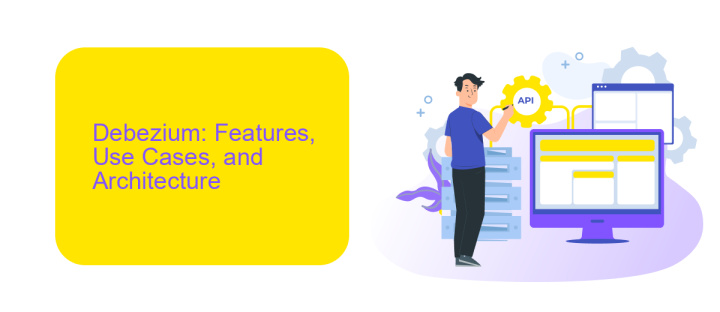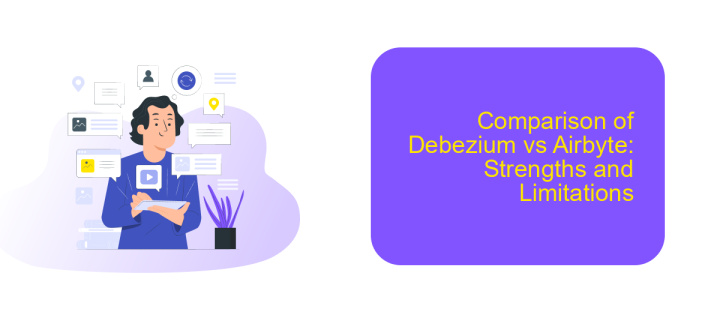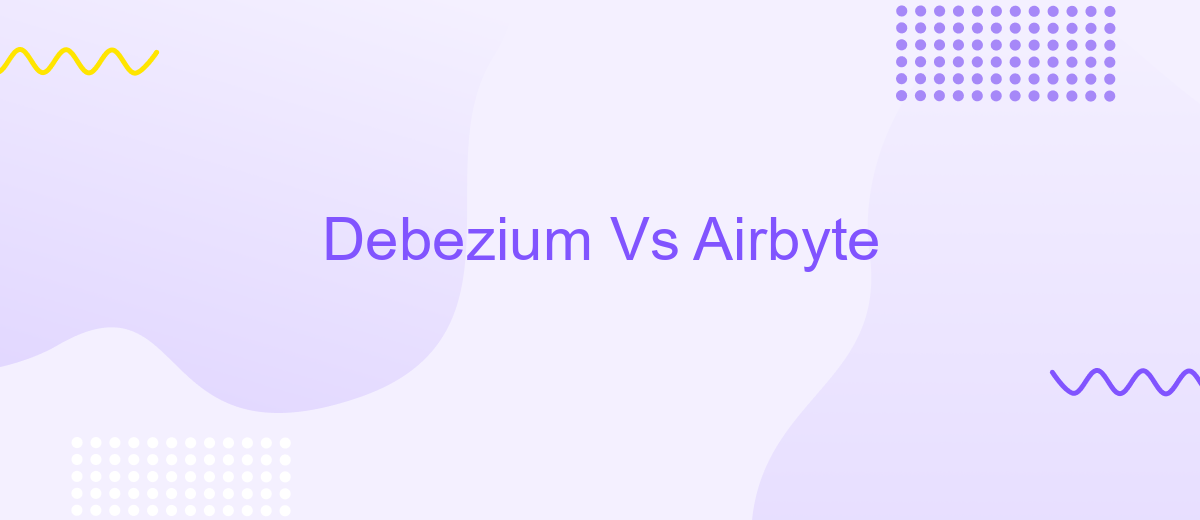Debezium Vs Airbyte
In the realm of data integration and real-time data streaming, Debezium and Airbyte have emerged as prominent tools. Both offer unique features and capabilities that cater to various data synchronization needs. This article delves into a comparative analysis of Debezium and Airbyte, highlighting their strengths, weaknesses, and ideal use cases to help you choose the right solution for your data integration requirements.
Introduction: Overview of Debezium and Airbyte
Debezium and Airbyte are two powerful tools designed to facilitate data integration and real-time data streaming. Debezium is an open-source distributed platform that captures data changes in databases and propagates them to downstream applications. It is particularly effective for maintaining up-to-date data across multiple systems.
- Debezium: Focuses on change data capture (CDC) for databases.
- Airbyte: Specializes in data extraction, transformation, and loading (ETL) from various sources.
On the other hand, Airbyte is an open-source ETL platform that allows for seamless data integration from multiple sources into data warehouses. Both tools offer unique features tailored to different data integration needs, making them essential for modern data-driven environments. For those looking to simplify the setup of these integrations, services like ApiX-Drive can provide valuable assistance, ensuring smooth and efficient data workflows.
Debezium: Features, Use Cases, and Architecture

Debezium is an open-source distributed platform that captures and streams database changes in real-time. It provides a set of connectors to various databases like MySQL, PostgreSQL, and MongoDB, enabling applications to react promptly to changes. Key features include change data capture (CDC), which ensures that all data modifications are tracked and propagated, and integration with Apache Kafka for efficient data streaming. Debezium is designed for high availability and scalability, making it suitable for enterprise-level data integration tasks.
Use cases for Debezium include data replication, event-driven architectures, and real-time analytics. It is particularly useful for maintaining up-to-date data in microservices and synchronizing data across different systems. The architecture of Debezium involves connectors that monitor database logs, Kafka Connect for data streaming, and Kafka topics where changes are published. For those looking to simplify the integration process, services like ApiX-Drive can be valuable, as they offer tools to automate and manage the integration of Debezium with other applications, ensuring seamless data flow and reducing manual intervention.
Airbyte: Features, Use Cases, and Architecture

Airbyte is an open-source data integration platform that facilitates the seamless transfer of data between various sources and destinations. It is designed to be highly modular and customizable, allowing users to create and manage their data pipelines with ease.
- Open-source and Extensible: Airbyte's open-source nature allows users to contribute to its development and extend its functionalities.
- Custom Connectors: Users can create custom connectors to integrate with virtually any data source or destination.
- Incremental Data Updates: Supports incremental data updates, reducing the load on your systems and ensuring that only new or changed data is transferred.
- Scheduler: Built-in scheduler to automate data syncs at specified intervals.
- API Integration: Services like ApiX-Drive can be used to streamline the integration process, providing a user-friendly interface for setting up and managing data flows.
Airbyte is ideal for businesses that need to integrate data from multiple sources into a centralized repository for analytics, reporting, or operational purposes. Its flexible architecture makes it suitable for a wide range of use cases, from small startups to large enterprises. By leveraging tools like ApiX-Drive, users can further simplify the integration process, making it accessible even to those with limited technical expertise.
Comparison of Debezium vs Airbyte: Strengths and Limitations

Debezium and Airbyte are both popular tools in the data integration landscape, each with its own set of strengths and limitations. Debezium is primarily focused on change data capture (CDC) and is well-suited for real-time data streaming from databases. It integrates seamlessly with Kafka, making it a robust choice for those already using Kafka in their data stack.
On the other hand, Airbyte is a more versatile data integration platform that supports a wide range of sources and destinations. Its strength lies in its extensive connector library and ease of use. Airbyte's open-source nature allows for community-driven development, which means new connectors are frequently added and existing ones are regularly updated.
- Debezium Strengths: Real-time CDC, strong Kafka integration, reliable for database streaming.
- Debezium Limitations: Limited to databases, requires Kafka, less flexible for non-CDC use cases.
- Airbyte Strengths: Extensive connectors, user-friendly, open-source, flexible.
- Airbyte Limitations: May require more configuration, not as specialized in CDC.
For those looking to simplify the integration process, services like ApiX-Drive can be invaluable. ApiX-Drive offers an easy way to connect various applications and automate data flows without extensive coding, complementing the capabilities of both Debezium and Airbyte.
Conclusion: Choosing the Right Tool for Your Needs
When deciding between Debezium and Airbyte, it's crucial to consider your specific use case and technical requirements. Debezium excels in CDC (Change Data Capture) scenarios, providing real-time data streaming from databases. It is highly effective for applications needing immediate data synchronization and consistency. On the other hand, Airbyte offers extensive support for a wide range of data sources and destinations, making it ideal for ETL (Extract, Transform, Load) processes. Its flexibility and ease of use are beneficial for teams looking for a more straightforward integration setup.
Additionally, for businesses seeking to streamline their integration processes without extensive coding, services like ApiX-Drive can be invaluable. ApiX-Drive simplifies the connection between various applications and services, reducing the complexity of data workflows. Ultimately, the choice between Debezium and Airbyte should be guided by your project's data integration needs, technical expertise, and the level of real-time data processing required. Evaluate each tool's strengths and limitations to ensure you select the one that best aligns with your organizational goals.
- Automate the work of an online store or landing
- Empower through integration
- Don't spend money on programmers and integrators
- Save time by automating routine tasks
FAQ
What is the primary difference between Debezium and Airbyte?
Can Debezium and Airbyte be used together?
Which tool is better for real-time data replication?
Do I need to know how to code to use Debezium or Airbyte?
Are there services that can help with automating and setting up integrations for Debezium or Airbyte?
Apix-Drive is a universal tool that will quickly streamline any workflow, freeing you from routine and possible financial losses. Try ApiX-Drive in action and see how useful it is for you personally. In the meantime, when you are setting up connections between systems, think about where you are investing your free time, because now you will have much more of it.


